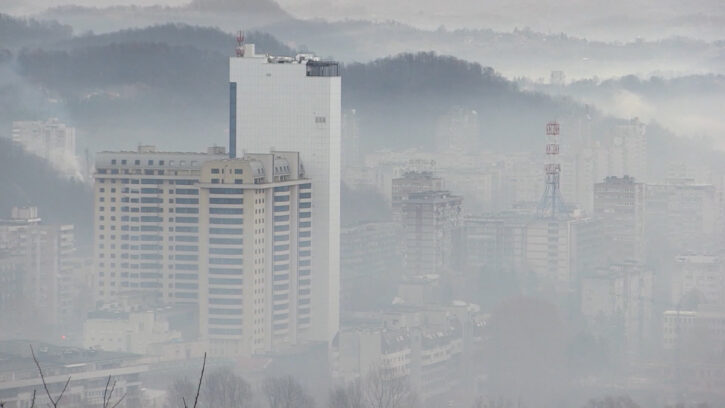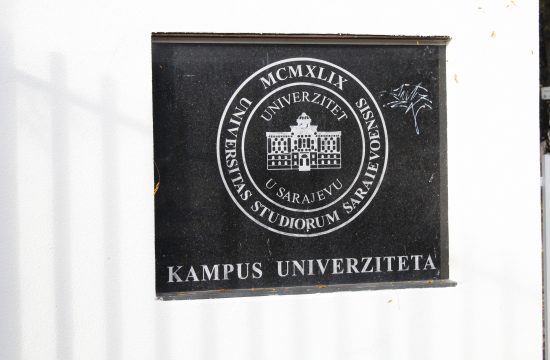
Dubbed as “the Chernobyl of Europe” a coal-fired power plant located near the Bosnian city of Tuzla is among the top causes of death in the part of the country surrounding this city, experts warn.
The Ugljevik coal plant in the northeastern Bosnia produces more sulphur dioxide than all German coal-fired power plants together, a report released by five different environmentalist groups warned earlier this week.
In addition, the levels of particulate matter in the air and nitrogen oxides are equally alarming, the report warned.
“Our analysis shows that over 3,900 premature deaths occurred in 2016 due to 16 coal power plants in the Balkans. All those power plants are still operating. The air pollution is a silent killer…,” said Vlatka Matkovic-Puljic, one of the authors of the report.
Local residents in Bukinje, a mining village near Tuzla, share the concern over their health.
Senad Isakovic says he could talk for days about the bad air they breathe.
“Everything that surrounds us is polluted,” he said. “Even our children die and all those diseases are linked to the pollution, of water, air, soil.”
Head of the Bukinje local community, Goran Stojak, claims that locals in the village do not die from natural causes.
“I don't know a single person who died from natural causes. Would it be alarming if I told you to go to the healthcare centre which is always full, children are sick, everyone's sick,” said Stojak.
Medical experts confirm their concerns and say it is about time for the authorities to react.
“There is no replacement for health. But those people have to be taken care of because they suffered there and were exposed to the silent killer. I come and go but they are the ones who are exposed,” warned pulmonologist, Zehra Dizdarevic.
The report that the environmentalists published this week said in 2016 alone 16 outdated coal-fired power plants in the Western Balkans spewed out the amount of sulphur dioxide into the atmosphere equivalent to all of European Union's 250 coal power plants combined.
The Ugljevik power plant is considered to be the leader pollutant. Its management said they were aware of the problem and have been working on a project to reduce the sulphur dioxide release.
“When the facility to desulphurise the flue gas in the Ugljevik power plant is put into operation by end of the year, this will be in terms of emission of sulphur dioxide and solid particles the cleanest power plant not only in Bosnia and Herzegovina but in the region as well,” said the power plant's management.
For now, the use of other sources of energy would significantly affect the existence of thousands. Trade union representatives say it would indirectly change the lives of nearly eight thousands of people.
“These are the pure wishes but the reality is different. And the reality is that without coal it wouldn't be possible to produce the electric power from renewable sources of energy that would be sufficient for the whole Bosnia and Herzegovina,” said Zuhdija Tokic, representing the Kreka mineworkers’ union.





